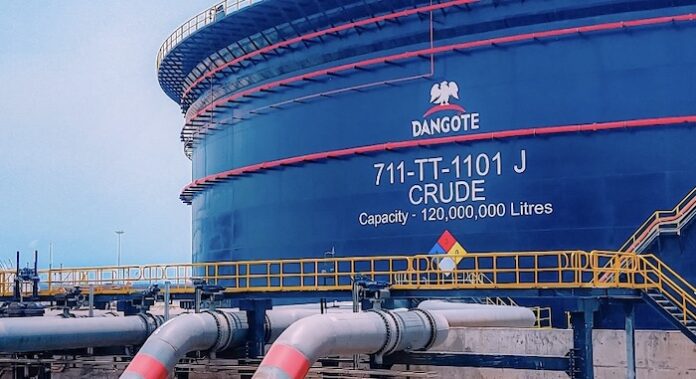Dangote Petroleum Refinery is set to import a cargo of Brazilian crude amid low Nigerian output.
According to to Bloomberg reports on Friday, this shipment will add to the significant volume of overseas crude that the Nigerian firm has been importing.
Indigenous refiners, including Dangote refinery and modular refineries, along with local crude producers, have repeatedly expressed concerns about the low crude oil output from Nigeria.
Despite efforts by the Nigerian Upstream Petroleum Regulatory Commission to address this issue, oil production in Nigeria has remained low.
The scarcity of locally produced crude has made it difficult for local refiners to secure supplies, as most of the oil produced domestically is exported due to pre-arranged contracts with International Oil Companies operating in Nigeria and the Nigerian National Petroleum Company Limited.
Traders with knowledge of the matter stated that Dangote refinery, which is still ramping up to full capacity, is set to receive a shipment of one million barrels of Tupi crude from Brazil for delivery in the second half of next month.
“The refinery, billed as pivotal in ending Nigeria’s dependence on foreign fuel, has already snapped up millions of barrels of American crude,” Bloomberg reported. The report also noted that the purchases of non-Nigerian barrels likely reflect the most competitively priced and suitable cargoes available.

Traders mentioned that the cargo was sold by Petrobras, a state-owned Brazilian multinational corporation. Bloomberg added that officials from both companies did not immediately respond to requests for comment.
Citing data from Brazil’s commerce ministry, the publication highlighted that this is the first time Brazil has exported oil to Nigeria.
Recently, Dangote refinery purchased five million barrels of US crude scheduled for delivery next month and in September. In May, it was reported that the refinery planned to purchase 24 million barrels of crude from the US over the course of a year.
Modular refiners have indicated that crude importation will continue until Nigeria produces enough barrels to meet both domestic demand and export needs.




